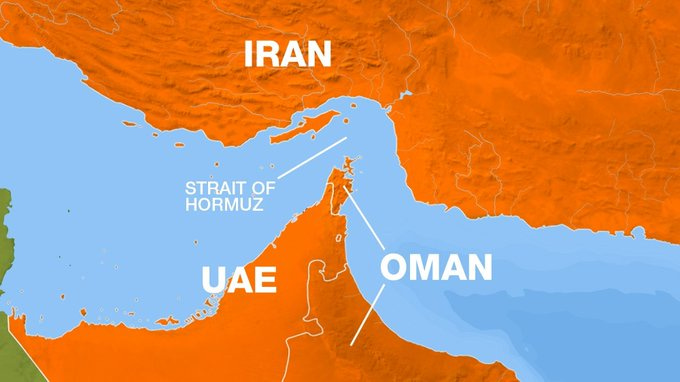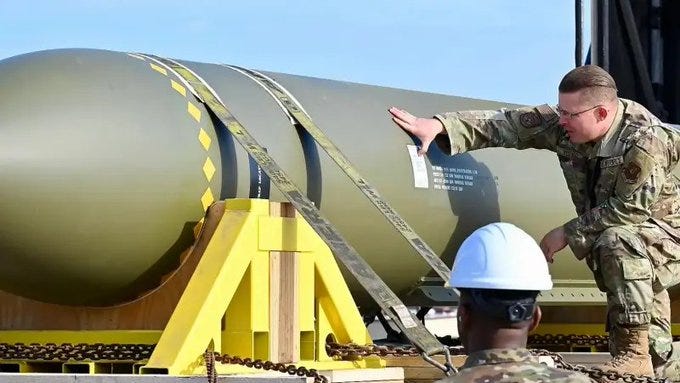Let’s start with big picture stuff. Over the past decade or so there have been repeated reports that China and India are going to reconcile. Both countries are founding members of BRICS and there are no real reasons for their enmity—except for obscure disputes concerning which mountaintops should define their borders. Rationally, these two giant nations should be able to find a way to live side by side with the Himalaya’s in between. Today, there’s another such report:
Philip Pilkington @philippilk
It looks like the BRICS alliance is solidifying. An India-China rapprochement would be huge.
Keji Mao (毛克疾 @kejimao
S. Jaishankar [foreign minister] has once again made a significant statement on China, signaling that India may be preparing for a major shift in its China policy — de-emphasizing U.S.-India geostrategic alignment and dialing down the priority of the border confrontation with China.
Looking ahead, industrial and economic engagement is likely to become the primary arena of China–India bilateral interaction, a domain whose strategic weight should not be underestimated.
The Modi government’s move to revive BYD’s automotive project in India stands as the clearest indication of this emerging shift.
11:02 AM · Mar 28, 2025
India-China issues expected but can be addressed without conflict, says India foreign minister
"We know that, between India and China...at least in the foreseeable future, there will be issues, but there are ways of addressing those issues, and what happened in 2020 was not the way," Foreign Minister Subrahmanyam Jaishankar said in a conversation with non-profit Asia Society.
India Prime Minister Narendra Modi had also said last week that "trust, enthusiasm, and energy" would return to the equation with China, and that the focus of the countries was to ensure difference do not turn into disputes.
"We feel that from October...the relationship has seen some improvement...what we are trying, step by step, is to see if we can rebuild, undo some of the damage which happened as a result of the actions in 2020," Jaishankar said.
India and China share a 3,800 km (2,400 mile) border that has been disputed since the 1950s, and have previously gone to war over it.
Modi and Chinese President Xi Jinping met on the sidelines of the BRICS summit in Russia last year – their first formal talks since 2020 - and agreed to boost communication and cooperation, and resolve conflicts to improve ties.
Let me suggest that one factor that could be driving this move toward rapprochement is Trump’s threatening behavior toward Iran. As I’ve tried to emphasize, there is no separating the Anglo-Zionist war on Russia from the Anglo-Zionist wars (or projected wars) across Asia—from the Mediterranean to the Pacific. In that context, security in the Indian Ocean—where, for seven years running, Russia-China-Iran have conducted joint naval exercises—is critical. The interest in Iran is historical, cultural, strategic, (three words regarding Iran/India: Afghanistan, Pakistan, Baluchistan), and economic (Iran is the keystone to BRICS). China has nothing to learn about the hostile US Sino-strategy, but India may be coming to realize that they, too, could find themselves in a difficult position if the Anglo-Zionist ambitions cannot be controlled.
OK, all that is somewhat speculative, and so are most polling results. Still, these results from an Israeli centrist newspaper—so, admittedly, not fans of Netanyahu. Channel 12, on the other hand, is Israel’s most watched commercial TV station:
dana @dana916
 A recent survey conducted by Israeli Channel 12 found that 70% of Israelis lack confidence in Prime Minister Benjamin Netanyahu’s government. Additionally, half of the respondents disapprove of the latest judicial reforms.
The poll also revealed that 66% of Israeli settlers believe Netanyahu’s administration prioritizes religious and coalition-linked groups over the broader public.
Meanwhile, a separate poll released on Friday by the Israeli newspaper Maariv indicated that 70% of Israelis feel Netanyahu’s government prioritizes political interests over those of the Israeli occupation and its settlers.
According to the Maariv survey, 66% of Israelis are unhappy with Netanyahu’s leadership, with 48% expressing strong dissatisfaction. In contrast, 31% of respondents were satisfied, while 3% remained undecided.
thecradle
6:45 AM · Mar 29, 2025
More speculation: The spreading Israeli wars in the Levant—Gaza, Palestine, Syria, Lebanon—could deepen Israel’s current political crisis. Trump’s support for Netanyahu is probably all that allows him to retain his hold on power at this point.
Moving to more specific points, Larry Johnson this morning summarizes Iran’s response to Trump’s ultimatum under four points:
Iran reaffirms that it will not negotiate directly with the United States, especially under the policy of maximum pressure, and it rejects the American approach categorically.
Iran states that it does not negotiate on behalf of any regional power, and that Iran does not dictate the foreign policy of other nations or groups, including Yemen’s Ansarallah, which is an independent ally.
Iran states that it will not accept Trump’s ‘unrealistic conditions’, and that the U.S. demands were so extensive that they cannot be entertained even hypothetically.
Iran warns unequivocally that any military or hostile action, whether by the United States or any of its ‘stooges’, will be met with an Iranian response that will encompass all U.S. military assets in the Middle East.
In a video discussion (at link) LJ boiled that response down even further: ‘No, and Hell No.’
In that light …
- GEROMAN -- time will tell - -- @GeromanAT
that golden trump card will be used when the time is right.
Quote
Iran Observer @IranObserver0
BREAKING The IRGC navy commander says Iran has not made a decision to close the Strait of Hormuz, but he is the one who will close it if a decision is made
Here are two additional points that LJ made in the same video:
First, during his interview with Russian foreign minister Lavrov, Lavrov told him that Russia is fully aware of the Trump strategy to somehow stage manage Russia into cooperating against China. That’s a big problem for Trump’s Iran strategy. The Israel Lobby appears to be boxing Trump in for failure.
Second, LJ expressed great concern that Trump is not getting anything like full value out of the Intel Community:
They [the Intel Community] are not telling the truth about Iran. They're not saying, 'You know, Mr President, if you attack these targets inside Iran you're likely going to lose aircraft but, not only that, you are not going to destroy Iran's ability to retaliate, and when they retaliate they're likely to attack our air base at Al Udeid just across the water in Qatar. We have no capable air defense system to protect that base. They'll take out our naval facility in Bahrain. If we attack they'll take out the Saudi oil fields. They'll shut down the flow of oil out of the Persian Gulf.' The point is we can't prevail militarily, but that's not being said. They put on their cheerleader uniform and say "Go Trump go!" You know, give them the encouragement to do something stupid and then, when when the house is on fire, they say: "See, I told you you should have bought fire insurance."
In this final exchange from the same video, LJ reflects what I’ve been saying about the interconnectivity of geopolitical issues in the Anglo-Zionist war on the world. I disagree to this extent—I believe the strategy is very much aimed at BRICS and that Trump is fully aware of this. Further, Iran is just as existentially important to China and India. Wilkerson—whose views I don’t agree with in totality—warns of the dangers for escalation:
Johnson: I don't think the Trump administration really comprehends that this new relationship between Russia and Iran is predicated upon creating this economic corridor that runs from southern Iran up through Azerbaijan into Moscow, to where Russia is no longer dependent upon the Red Sea or the Bosphorous Straits getting into the Black Sea that they have another route, an alternative to the oceans. And, again, I don't think the Trump folks are taking this into account they're they're they are doing a silo approach they're looking at Israel and Iran as one thing Ukraine and and Russia as a completely separate thing Russia and China as a completely separate third thing without understanding the these things are interconnected.
Wilkerson: They're so interconnected, Nema that I think Larry's on to what I'm trying to draw out of other people as to what the real strategy of the group that wants to do this--some are in the Pentagon, some are in the National Security Council, some are at State is--and it is to do just what Larry just described. It's to bring Russia and China out in the open allied with Iran, or whatever, to where we can strike her before she grows any stronger and we find it difficult to do so. If not impossible. And this is a crazy strategy, but I know people who believe this is going to work, and they have been fermenting the Ukraine conflict and pushing what's happening in the Levant--to include allowing Israel to really go into Syria significantly, now to begin to kill people, drop bombs on Damascus, and other things like that in order to keep this going and to draw these powers in and attack them. And that's what worries me, because we will get into that conventional fracas, we will start to lose badly, and then we'll have to turn to nuclear weapons. And the idea that we won't turn to nuclear weapons when we're losing badly, conventionally, is poppycock. We will.
Wilkerson’s point extends further, and he raises it explicitly later: How do you walk back once you start down that road?
Finally, down to the very specific:
BREAKING US B-2 bombers that targeted the Houthis' underground missile complex with powerful Bunker Busters were unable to destroy it - WSJ
Satellite images show that only the entrances collapsed, but the Yemenis built new ones
This raises serious questions about USA's ability to destroy Iran's missile cities, which are much deeper and more extensive
WSJ: U.S. B-2 bombers failed to destroy a Houthi underground missile complex with Bunker Busters, collapsing only the entrances.
Satellite images show new entry points were built, raising concerns about the U.S.‘s ability to target Iran’s deeper missile facilities.
Of course that’s not the end of the matter, although it should be concerning. The real point is that, tough a nut as Yemen may be, Iran is certainly much tougher.






https://www.rt.com/news/614957-waltz-signal-leak-fire/
Vance asked Trump to fire Waltz – Politico
Interesting--if true. Which I hope it is. He's a toxic presence, as bad as Bolton and Pompeo, if less well known. If the Lobby allows Trump to fire him you have to ask, What the hell was Trump thinking when he appointed him? We all knew he was bad news:
https://theconservativetreehouse.com/blog/2025/03/29/waltz-on-the-bubble/
As a former House Intel Committee member, Mike Waltz comes from inside the IC machinery and there is a lot more to be concerned about than there is to be optimistic about.
Waltz has publicly said, engaged with, and acted upon, National Security Information (NSI) products, intelligence information, that is demonstrably false and fraudulent.